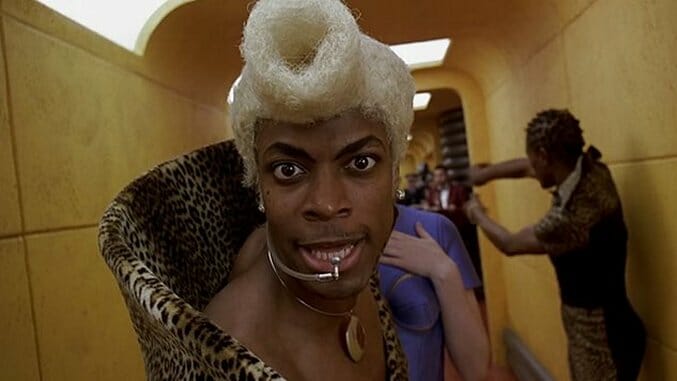The Fifth Element‘s Alternative Masculinity
On the twentieth anniversary of Luc Besson’s film, we explore how the director dismantled Bruce Willis’s macho persona.

In an early scene from Luc Besson’s The Fifth Element, there’s a subtle but very telling exchange between the film’s two protagonists. Cab driver Korben Dallas (Bruce Willis) has his daily routine interrupted when Leeloo (an early starring role for Milla Jovovich) crashes through his roof. She speaks an ancient language, so the two can’t communicate – until she says the word “boom,” that is. “I understand ‘boom’,” Korben replies. Right away, we’re cued to the limits of Korben’s worldview, mostly restricted to macho action. This is also the first hint we get that this is a self-reflexive role for Willis, breaking down his tough-guy star persona and digging deep into what exactly makes him such a reliable “guy-movie” centerpiece.
For all his typical manly heroism, Korben is a misfit in the film’s flamboyant future. He’s an alpha-male, tailor-made for the ’80s or ’90s, but, after finishing his time in the military, he’s adrift. The 23rd century doesn’t quite have room for him: He lives alone following a failed marriage, has trouble holding onto his job (and his driver’s license), can’t quit smoking and doesn’t have any friends outside of his old platoon. When the mysterious Leeloo literally lands into Korben’s life, he automatically takes on the role of protector. Leeloo is, it turns out, is a supreme being, sent to Earth to protect humanity from an ancient force that threatens the planet every 5,000 years.
-

-

-

-

-

-

-

-

-

-

-

-

-

-

-

-

-

-

-

-

-

-

-

-

-

-

-

-

-

-

-

-

-

-

-

-

-

-

-

-








































